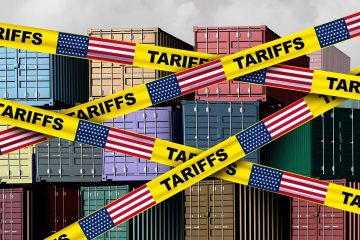Britain will lower the voting age to 16

The UK government announced on Thursday that it will reduce the voting age from 18 to 16 years ahead of the next general election, anticipated in 2029. This change fulfills a manifesto commitment made by the Labour Party during last year’s election. The move aligns UK-wide elections with those in the devolved regions of Scotland and Wales, marking what the British government calls one of the most significant changes to UK democracy in a generation. The plans include expanding the voter ID system to allow UK-issued bank cards as an accepted form of ID at polling stations, ensuring eligible voters are not “deterred from voting”.
“For too long, public trust in our democracy has been damaged and faith in our institutions has been allowed to decline,” said UK Deputy Prime Minister Angela Rayner, marking the release of a strategy paper that sets in motion plans to lower the voting age. “We are modernising our democracy, so that it is fit for the 21st century.” “By delivering our manifesto commitment to extend the vote to 16 and 17 year olds, we are taking a generational step forward in restoring public trust and boosting engagement in UK democracy, supporting our Plan for Change,” said Rushanara Ali, Minister for Democracy in the Ministry of Housing, Communities and Local Government (MHCLG).
The new strategy includes the establishment of a digital Voter Authority Certificate aimed at enabling Electoral Registration Officers to address voters’ digital needs, cut printing expenses, and ensure quicker delivery. An automated voter registration system aims to simplify the registration process, minimizing the need for individuals to repeatedly provide their information across various government services. The MHCLG announced plans to enhance transparency and accountability in politics by closing loopholes that could permit foreign donors through shell companies to sway UK political parties.
New requirements for unincorporated associations will necessitate checks on donations exceeding GBP 500 to address foreign interference and safeguard UK democracy from those seeking to undermine it. “We cannot take our democracy for granted, and by protecting our elections from abuse and boosting participation, we will strengthen the foundations of our society for the future,” added Rayner. The changes will be included in an elections bill to be presented in Parliament, along with secondary legislation to outline the implementation schedule. The MHCLG stated it will incorporate insights from democracies like Australia and Canada, known for their high rates of legitimate voter registration through automated systems.
Many individuals are being discouraged from voting due to voter ID regulations. The Electoral Commission reported that 4 percent of non-voters in the 2024 general election cited a lack of voter ID as a significant reason for not participating, which translates to approximately three quarters of a million people across Great Britain, according to the ministry. The government is advancing its plans to permit UK-issued bank cards as identification for voting, simplifying the process for more voters to fulfill the requirements. This change will enable us to maintain the integrity of the UK electoral system while enhancing accessibility, it noted.
Bank debit and credit cards are issued once an applicant has successfully completed the required security checks for a bank account. This ensures that they will be included among the widely accepted identification documents at polling booths. MHCLG asserted that these measures will strike the right balance by continuing to protect voters from the risk of impersonation, while also removing barriers to ensure legitimate voters are not prevented or discouraged from exercising their right to vote. Further reforms target “unacceptable practices,” imposing stricter penalties for those who intimidate campaigners and enhancing protections for candidates in public life by eliminating the requirement to publish their home addresses.










